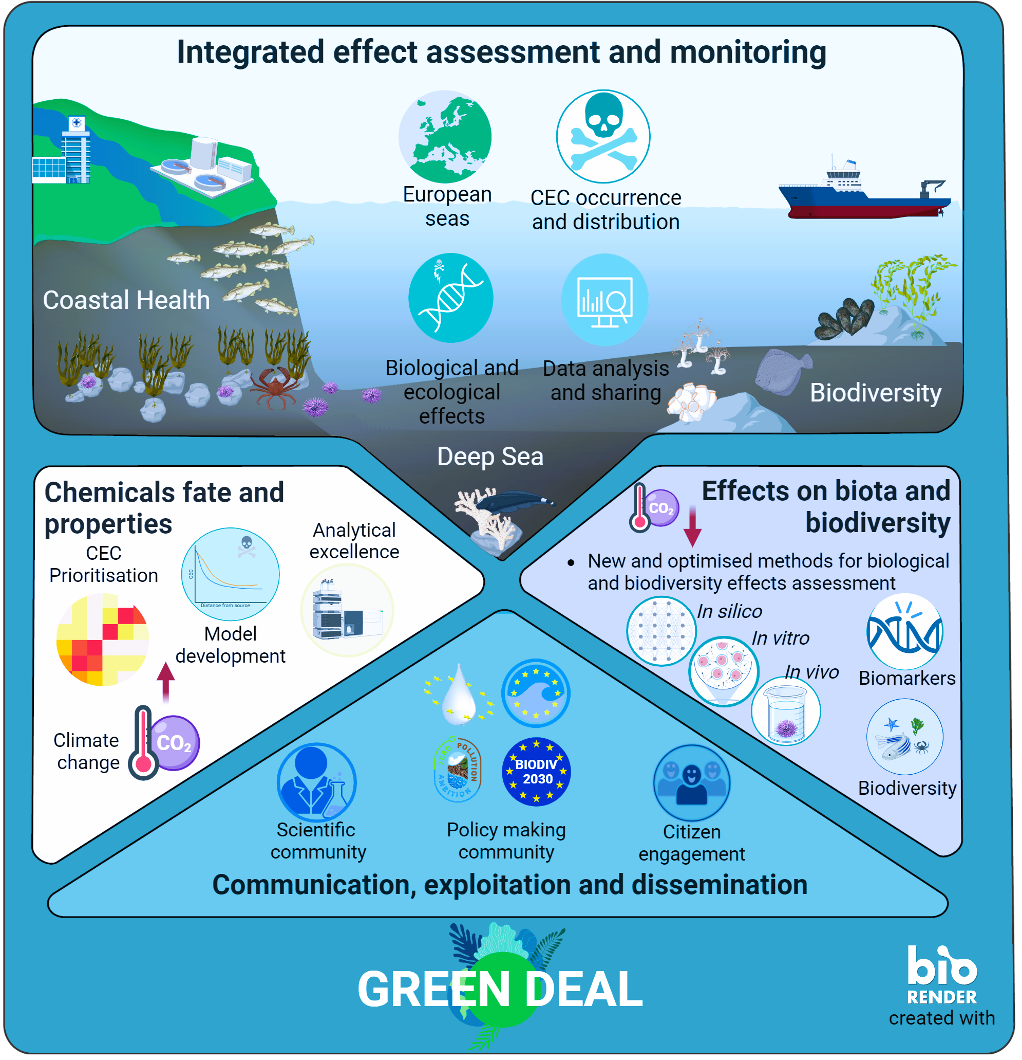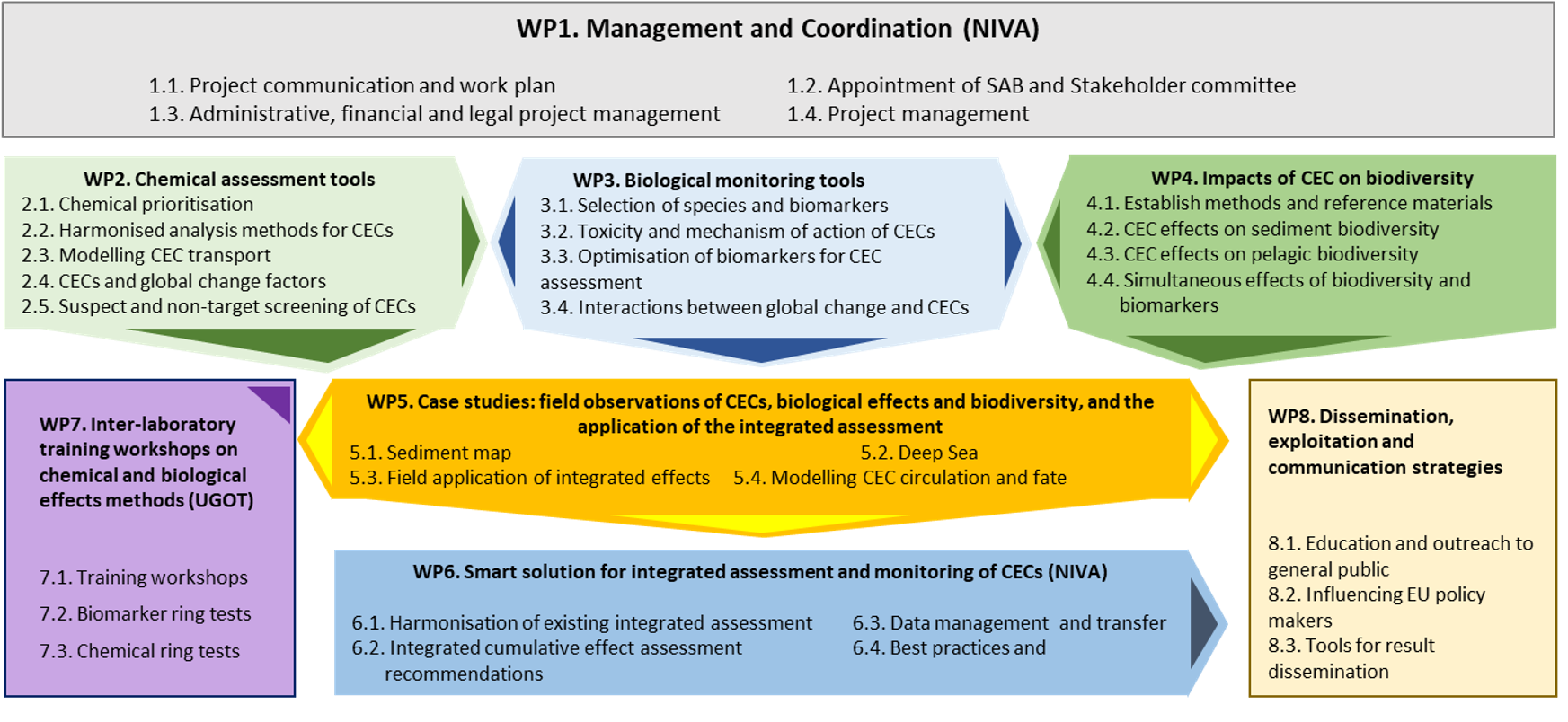
CONTRAST will advance understanding on the properties, occurrence, fate and effects of the most relevant CECs in the marine ecosystem and deliver solutions for efficient integrated assessment and effect-based monitoring of marine environments.
We will design, demonstrate and deliver fit-for-purpose framework(s) for innovative monitoring of CECs in European seas, with the vision of significantly supporting policymakers at the EU and national levels and contributing to the implementation of relevant environmental policies. Our main ambition is to develop an integrated chemical and biological effects framework that will become part of the Marine Strategy Framework Directive (MSFD) to evaluate Good environmental Status (GES).


Specific objectives in detail:
1. Develop chemical prioritisation schemes for the selection of CECs.
2. Determine fate and circulation of CECs in the marine environment.
3. Elucidate the mechanisms of toxicity of CECs to marine organisms.
4. Establish biological effects toolbox to cover mechanisms of toxicity of CECs to be used in monitoring.
5. Develop assessment tools to measure the impact of CECs on marine biodiversity.
6. Establish an integrated effects assessment framework (IAF) to measure the risk and impact of CECs in the marine environment for evaluating Good Environmental Status.
7. Include IAF with guidance documents for its application into EU policy.
8. Determine impact of climate change factors on CEC toxicity and transport and fate in the marine environment.
9. Determine accumulation and transport of CECs into deep sea environments.
10. Attest proficiency and quality of the methods through coordinated ring tests.
11. Raise the awareness level about the issues of CECs among the general public.